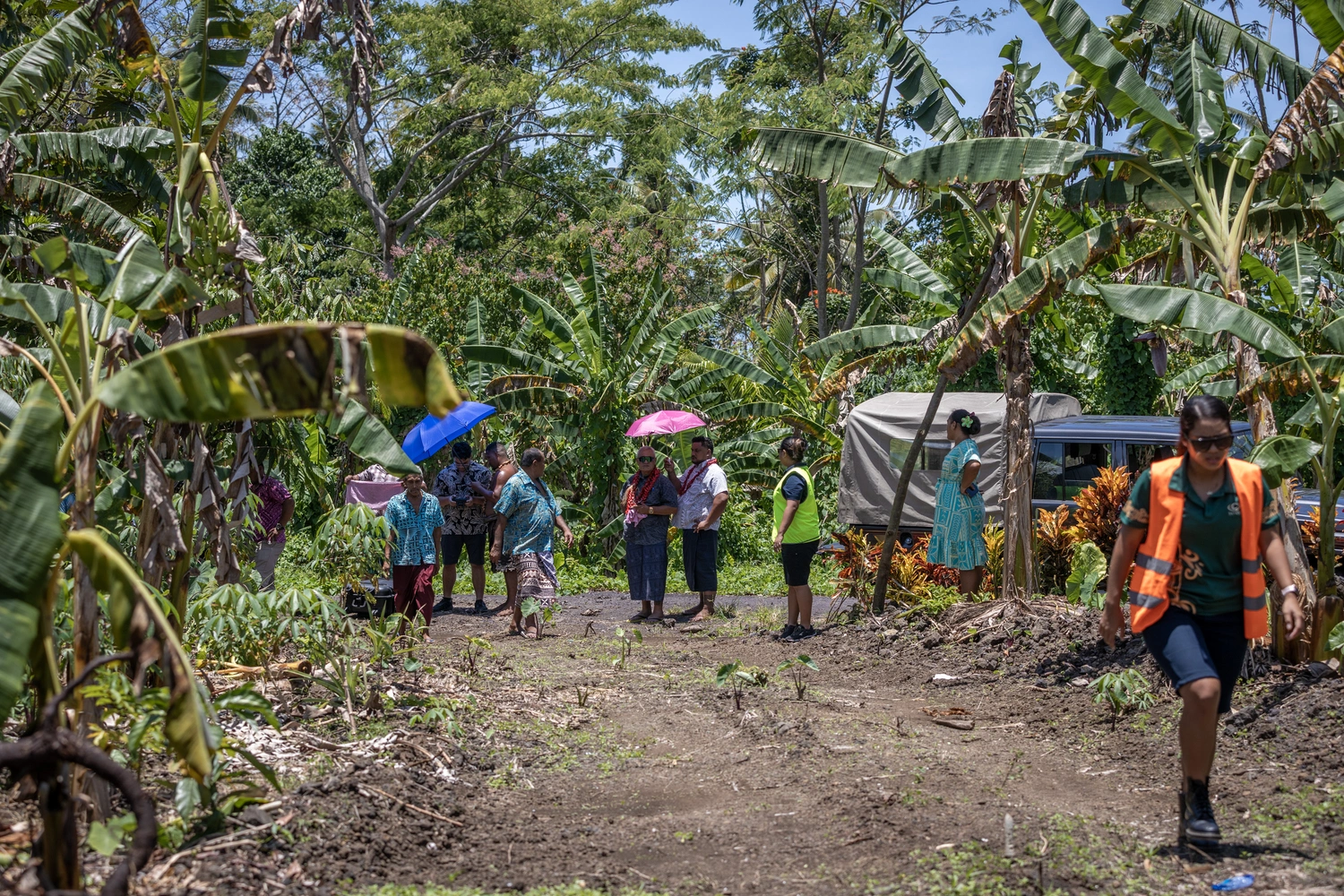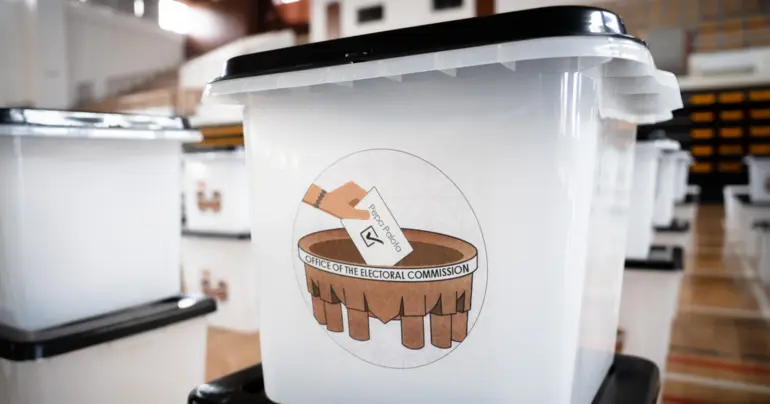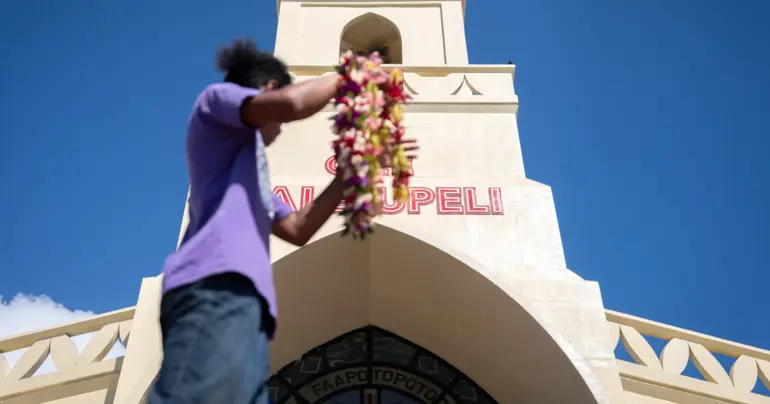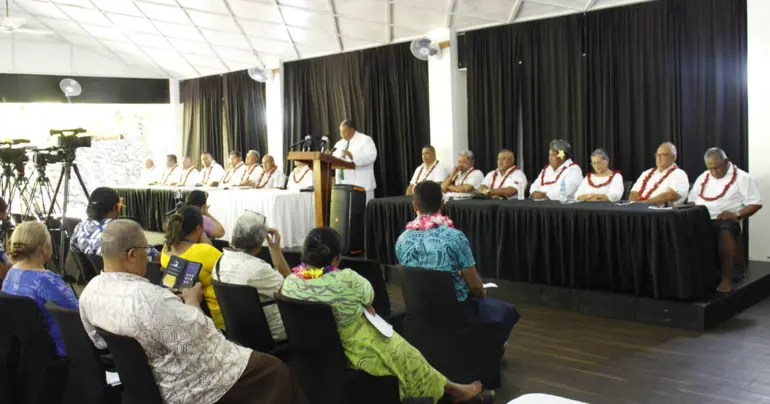Illegal occupation of land not to be entertained
The holidays are over and it seems the eviction intended by the Afega landowners is going to continue now that the court has clarified that Afega has the power to demolish the properties which are situated on land that does not belong to the people living there.
It is the right of the landowners to remove the squatters however the destruction of a church’s billboard was uncalled for.
The Deacon at the Catholic parish in Leauva'a-Uta expressed disappointment with the removal of a devotional billboard featuring a statue of the Holy Mother, Mary that stood in front of the church.
Deacon Efaraima Auala conveyed his disappointment to local media, stating that the removal occurred without consulting the church members.
Residents of Afega village, reclaiming lands occupied by Leauvaa-Uta for over 70 years, removed the billboard.
Deacon Auala believes they should have been asked before removing the devotional billboard.
He is of the view that the members of his church would have gladly removed the billboard so it wouldn't be destroyed. This required a little more resolve from the Afega side.
He expressed sadness upon discovering that its removal was part of Afega's efforts to evict families from Leauvaa.
Afega has all the rights to the lands which were at the centre of the dispute and that has been decided by the courts. People have been residing on the land knowing that it did not belong to them. That act should never be entertained.
If it is, then anyone will construct a dwelling anywhere they see fit. This is how illegal settlements form and because people have been living in a certain place for a number of years, they feel they have a right to it, when there is nothing legally giving them ownership.
There have been calls from people for the Afega landowners to show compassion. They have been doing that for 72 years and the situation did not change. What started as just one home has led to the families living illegally constructing several dwellings.
The holidays should have been a time for these families who have no right to the land to start making plans for resettlement.
The landowners have shown intent to develop their land to which they have all the rights and part of the development includes the eviction of those families residing illegally.
If this situation is not dealt with, we could give rise to informal settlements which impact the economy, the environment and the sanitation situation negatively.
There are several reasons why informal settlements exist and why people decide to establish and develop them. The main concept is that informal settlements have become a perpetual challenge and adversely impose negative impacts on the environment.
Living in informal settlements leads to exposure and vulnerability to environmental hazards to people and the land which they occupy.
Informal settlements are characterized by a lack of basic services, pollution, overcrowding and poor waste management. These characteristics impact negatively on the environment posing risk and susceptibility to health problems associated with informal settlements.
Apart from the living conditions that are found in informal settlements, the notion of informal settlements being self-built by families and using temporary materials has its negative impact on the environment.
People residing in informal settlements face challenges in service delivery. This is mainly since land was occupied illegally, thus impacting negatively on the environment. A lack of basic needs and services leads to informal settlements having impacts on the environment.
This includes inadequate sanitation which leads occupants to pollution, the use of coal and biomass fuel for lighting, causing air pollution and in turn contributing to the emission of greenhouse gases. Waste removal is an issue with which informal settlers’ struggle and which causes land pollution and emerging and re-emerging infectious disease hazards.
This nation is still far away from having informal and illegal settlements become an obstruction to national development, however no chance should be given for such developments to take place.
The courts have spoken and Afega has decided what they want to do. Now, it is time for the Leauvaa and Levi Saleimoa residents living illegally to move. That would be the legally correct thing to do. However, for the sake of compassion, 30 days notices should be given to the families and that they are able to organise their relocation.











